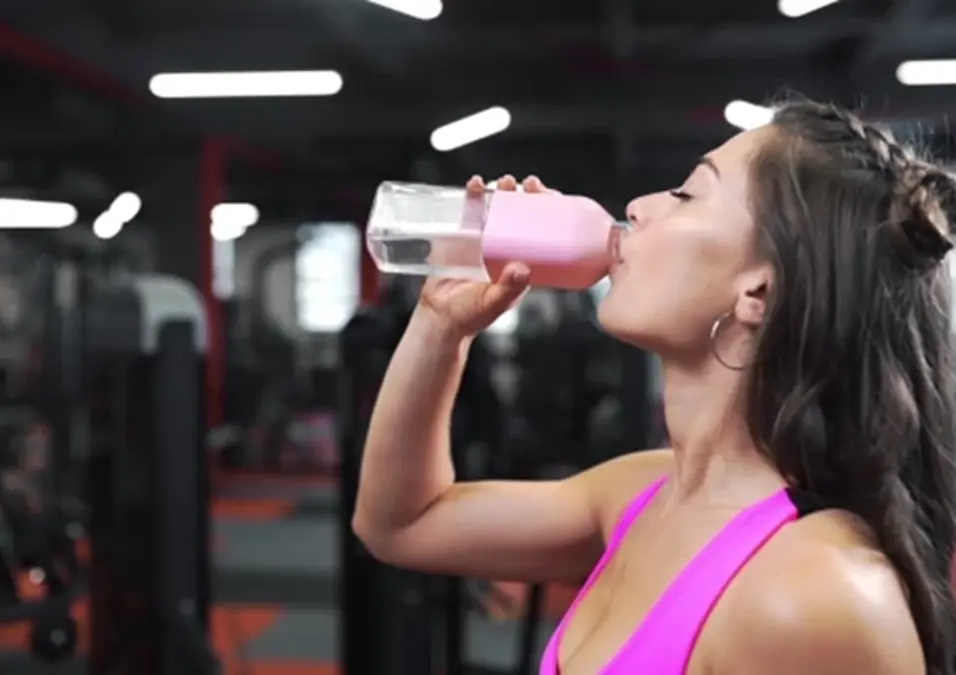Why hydrate at gyms in Dubai?

SIGN UP FOR YOUR FREE DAY PASS TODAY!
We are mostly made up of water: it constitutes roughly 60% of our body mass. Regularly replenishing this stock is therefore incredibly sensible and, as we will shortly see, vital for health, especially for those who live in hot countries like Dubai and those who take part in lots of exercise.
If you attend the gym in Dubai, therefore, you need to drink plenty!
Dehydration
Fluids have a few important roles in our body. They play major roles in maintaining the health of the heart, brain, and muscles, help us to regulate body temperature through perspiration, form the majority of our blood and help to transport nutrients to the body’s cells, keep joints lubricated, prevent infections, deliver nutrients to cells, and keep organs functioning properly. Being well-hydrated also improves sleep quality, cognition, and mood, and often enables greater weight loss.
It is easy to become dehydrated (especially if you’re hitting the gym in Dubai for regular hard exercise or fitness classes) Dehydration can occur when you don’t drink enough to replenish the fluid that you have used up. Excessive sweating, hard exercise, diarrhoea, vomiting and over-consumption of diuretics can all contribute to dehydration.
If you’re urine runs clear, you will be getting it right. If it runs darker, or has a strong odour, you are dehydrated and need to drink more.
Common symptoms with minor dehydration can include feelings of faintness or fatigue, headaches, cramps, and a loss of athleticism. More extreme dehydration can bring about some serious, life-threatening side symptoms like organ failure.
The importance of hydration
Restoring the body’s fluid balance can offset and reverse minor symptoms of dehydration. For more serious concerns, medical intervention is often necessary and it’s always a good idea to check with your healthcare provider if you are at all concerned.
To keep your fluid levels balanced, it’s a good idea to drink around 2 litres per day (for women) or 3 litres per day (for men). This is a rough guide. If you’re larger than average, you will likely need more, and if you’re smaller, less. In addition, those in hot countries and those taking part in exercise will need more. Those on a weight loss diet may also find themselves needing to drink more water, as they will be getting fewer fluids through food than they are used to.
A good rule of thumb is to make sure you drink 8-10 glasses of water per day. Not all of these glasses have to come from just plain water. For example, some can come from water flavoured with fruit or vegetables (lemons, berries, or orange or cucumber slices), from squash or juice, or from coffee or tea. However, make sure to keep an eye on sugar and caffeine intake, as you don’t want either to go too high.
Hydration, exercise and weight loss
Dieters looking to lose weight will do so more efficiently when they are fully hydrated. Indeed, it’s been shown that those who increase their water intake will lose more weight than those who don’t. Thirst is often mistaken for hunger, so increasing fluid intake aids in satiation. In addition, we get a surprising amount of fluid from foodstuffs like fruit, veg and dairy: cutting these down for a caloric deficit will mean needing to replace water in the diet.
It is important to replace water during and after hard exercise. This will stop you from suffering dehydration, as above. It will also reduce post exercise soreness and fatigue, alongside improving endurance and athleticism during training.
Both proper hydration and regular exercise have been shown to increase energy levels. No matter your health and fitness goals, you will be better off drinking and exercising a bit more: weight loss, strength gains, endurance and overall vitality, happiness and wellbeing all stand to benefit.
GET YOUR FREE TRIAL TODAY














































































